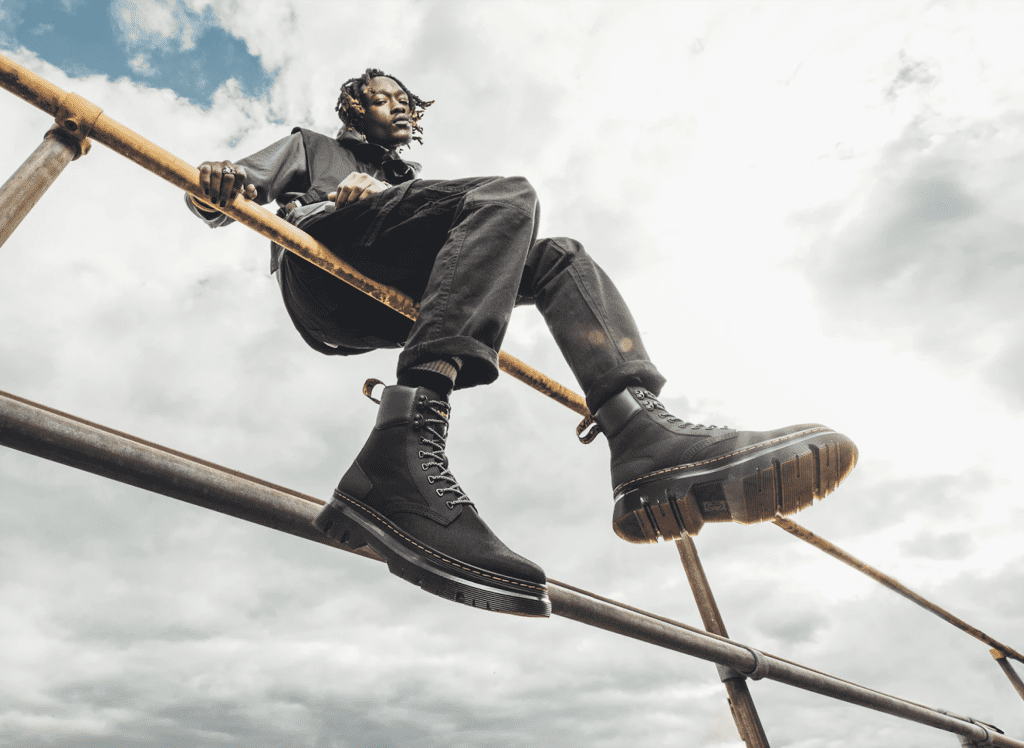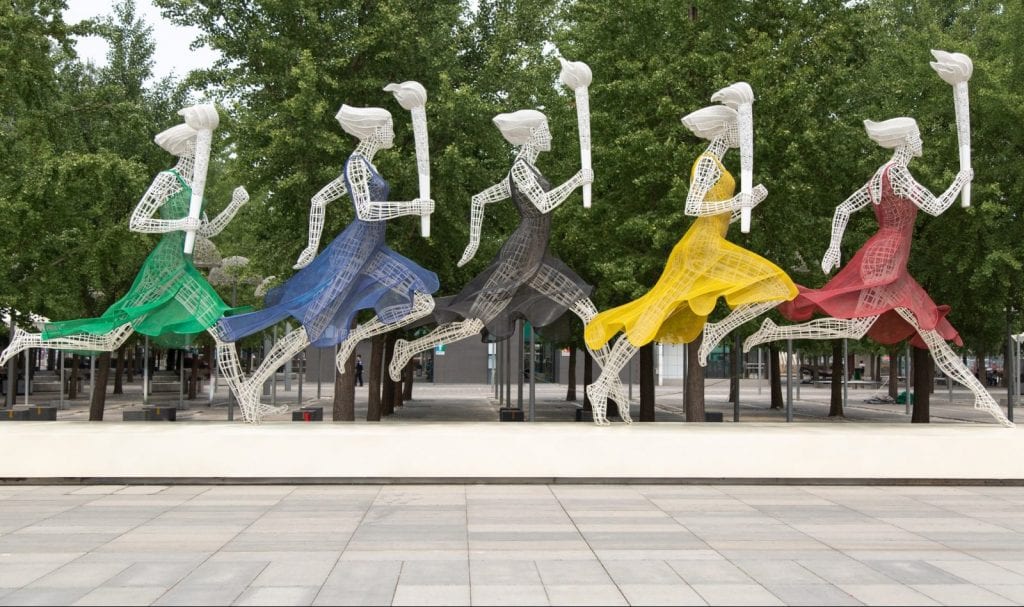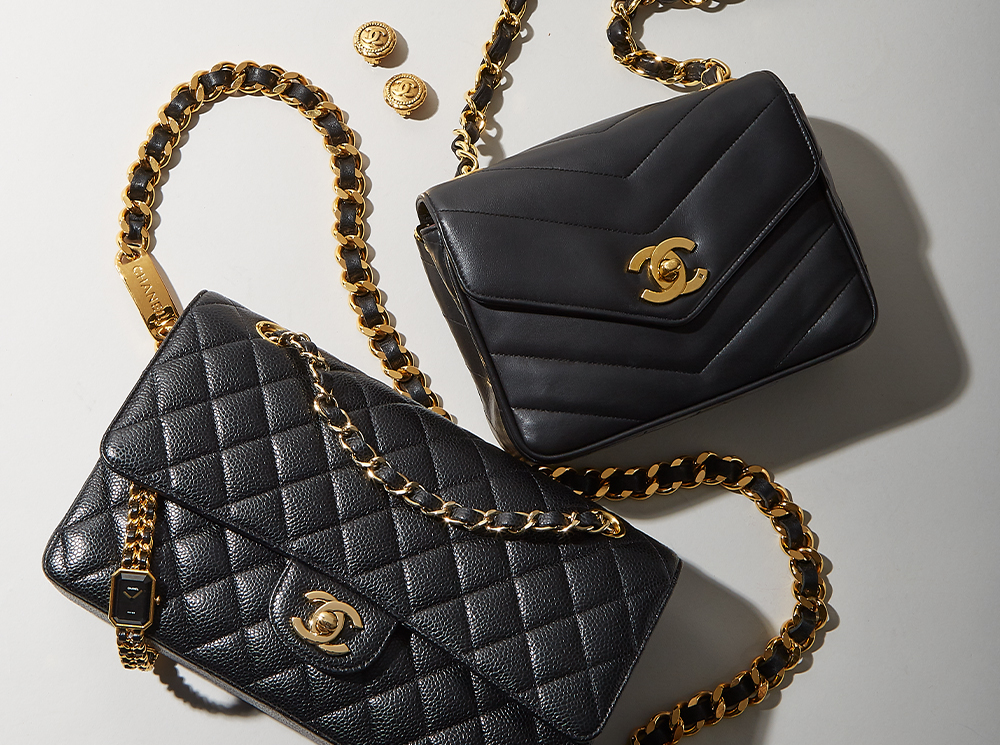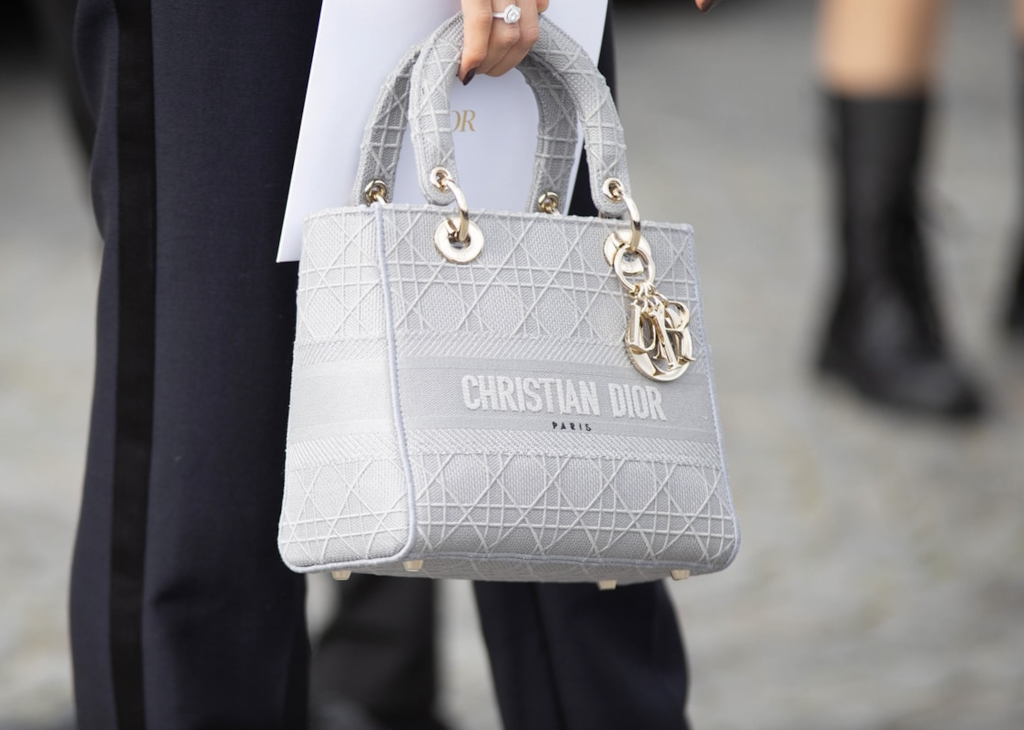Shein owner Zoetop is pushing back against the trademark infringement lawsuit filed against it by AirWair in which the Dr. Martens owner alleges that the Chinese fast fashion behemoth has intentionally offered up footwear that blatantly replicates its famous and trademark-protected boot designs, in the latest in a growing number of lawsuits that are plaguing the company as it continues to overshadow the West’s biggest fast fashion establishments thanks to thousands of extremely cheap and regularly-introduced offerings. While Shein’s striking rise initially occurred in an under-the-radar capacity, enabling it avoid legal action from Western rights holders, that is swiftly starting to change.
In the complaint that it filed in a California federal court in November 2020, AirWair alleges that by way of its Shein and Romwe brands, Zoetop has “marketed, distributed, and sold shoes and boots that are direct and obvious copies” of the distinctive trade dress of its “iconic boots and shoes has been used by the company since 1960 and [which] is world famous.” Most immediately, AirWair claims that Zoetop co-opted the trade dress that is used in the Dr. Martens 1460 boot, “among many other iconic AirWair styles,” which consists of a combination of features, including: “yellow welt stitching; a grooved sole edge; an angled heel; a two-tone sole edge; [a specific] sole pattern; [a specific] cleat pattern; and yellow and black heel loop.”
Given that “millions of pairs of shoes, boots, and sandals with [that] distinctive trade dress have been sold in the U.S.” over the past 35 years, AirWair asserts that when used on Dr. Martens footwear, the combination of design elements serves to “identify the merchandise as high-quality goods from AirWair” (i.e., the elements act as a trademark), which makes it problematic that Shein, Romwe, and co. are using the design elements on at least 26 different shoe styles without authorization from AirWair.
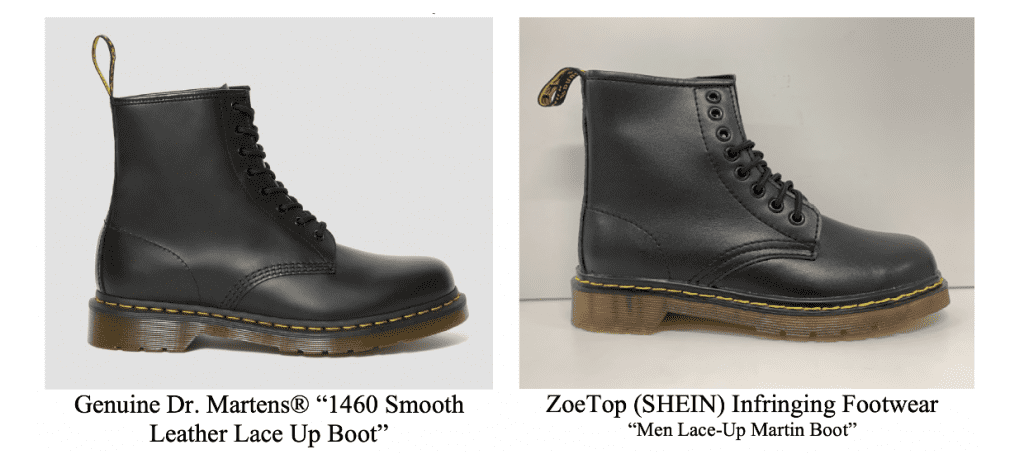
Given the similarity between AirWair’s various trademarks and the Zoetop shoe styles, including the ones being offered up by Shein, AirWair argues that consumers are likely to be confused and that its valuable trademarks are being damaged. As a result, the London-based footwear company set out federal and state law claims of trademark infringement and dilution, and unfair competition in the complaint it filed last year. In connection with those claims, AirWair is seeking injunctive relief, as well as monetary damages – either actual damages and profits or statutory damages of “$2 million per counterfeit mark per type of services and/or goods sold or offered for sale by ZoeTop.”
“Generic” & “Functional” Trademarks
Fast forward almost a year after AirWair first filed its suit, and Zoetop has filed an amended answer to the complaint, denying the bulk of AirWair’s allegations, and lodging a list of affirmative defenses, as well as counterclaims, in connection with which it is angling to invalidate a number of AirWair’s trademark registrations and limit AirWair’s rights in the trade dress at issue in the case. If successful, such invalidations would likely let Zoetop off of the hook when it comes to AirWair’s trademark claims.
Setting out fifteen affirmative defenses, Zoetop argues, among other things, that it is shielded from AirWair’s claims because the Dr. Martens-maker’s trademarks are invalid. Specifically, Shein owner Zoetop argues that “AirWair’s purported trademarks and/or trade dress, including elements such as welt stitching, cleats, single or two-tone soles, platform soles, grooved soles, and heel loops,” do not actually operate as trademarks because they are generic, functional, and lack secondary meaning. In that same vein, Zoetop contends that “one or more of AirWair’s trademark registrations was improperly issued by the United States Patent and Trademark Office because the descriptions of the mark(s) are overbroad and exceed the scope of AirWair’s rights in the mark(s), including because the descriptions incorporate characteristics that are functional, generic, lack secondary meaning, and/or do not identify the source of the products bearing the marks as AirWair.”
In a separate but related affirmative defense, Zoetop asserts that AirWair’s trademark claims are barred by the doctrine of trademark misuse, as AirWair has “attempted to use its purported trademarks and trade dress in an overly broad manner for anticompetitive purposes to drive competitors out of the market.” And in yet another defense, Zoetop argues that AirWair’s claims are barred “in whole or in part by the doctrines of fair use or nominative fair use.”
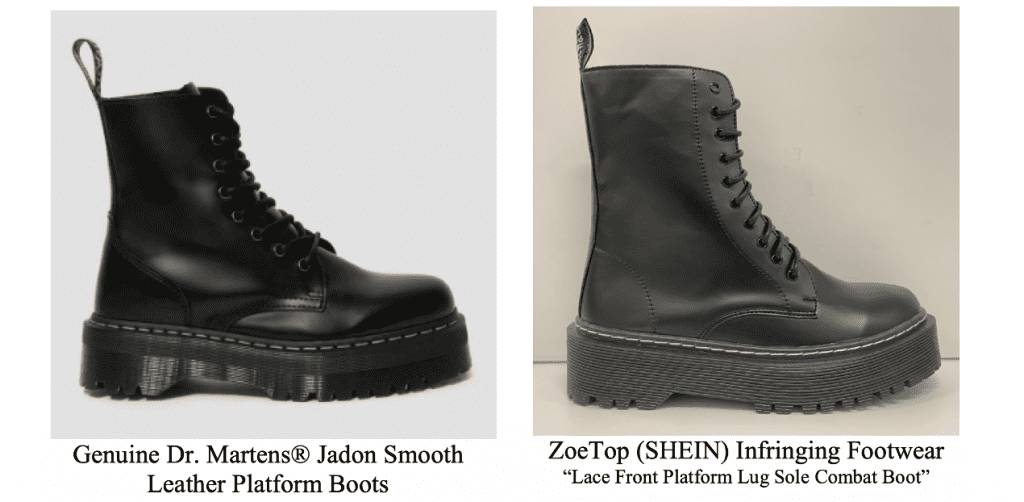
As for its counterclaims, Zoetop focuses in large part on its argument that AirWair’s various trademark claims “represent an overreach by AirWair.” According to Zoetop, AirWair has taken to “asserting ever-broadening rights pursuant to its limited registrations and purported common law rights, in an effort to impede legitimate competition.” In particular, Zoetop claims that AirWair is alleging infringement in instances when Zoetop has not used all of the critical elements of the relevant trademark, such as in cases where the Zoetop brands have used “a non-yellow stitching” – as opposed to AirWair’s famous yellow stitching – or where the Zoetop products have “a sole of a single color” when AirWair’s rights extend to boots with two-tone soles.
The issue with that, Zoetop claims, is that AirWair’s rights in its various trademarks “are limited to footwear with each and all of the [claimed elements at play],” and yet, the company is claiming infringement in instances when not all of the relevant elements are present.
Against that background, Zoetop asserts that it has lodged its counterclaims in an attempt to “defend itself against AirWair’s overly broad assertion of its intellectual property rights,” namely, by asking the court to “clarify the proper scope of [AirWair’s] rights” in a handful of trademark registrations (U.S. Registrations 2,437,750; 2,437,751; 5,067,689; and 5,067,692), and unregistered trade dress. It has asked the court to cancel the registrations outright and/or to restrict the scope of AirWair’s rights in those marks, as well as its unregistered trade dress.
The case is AirWair International, Ltd. v. Zoetop Business Co., et al, 3:20-cv-07696 (N.D.Cal.).




